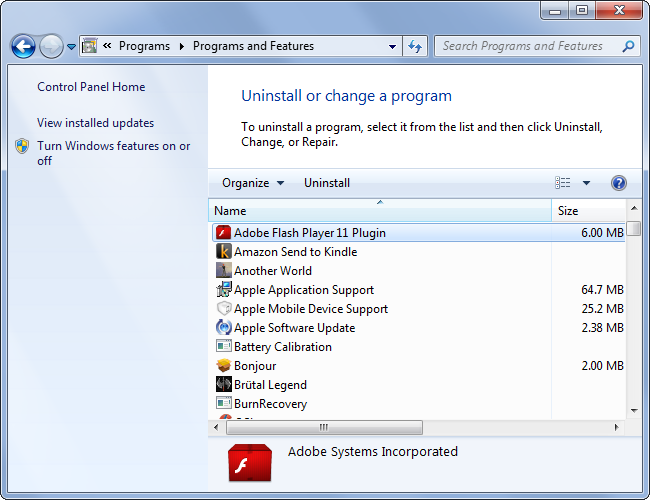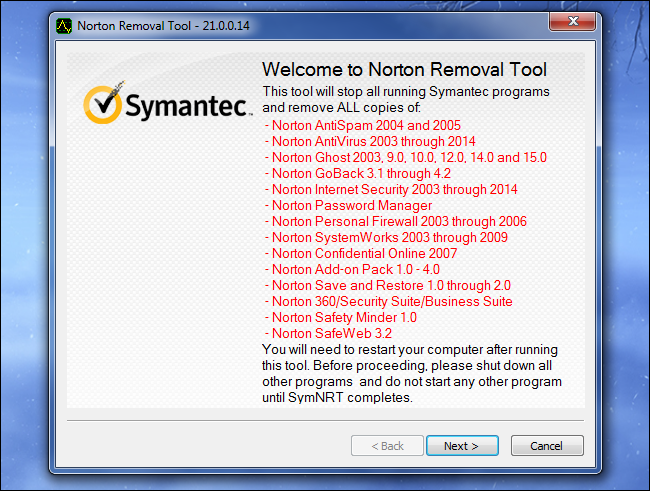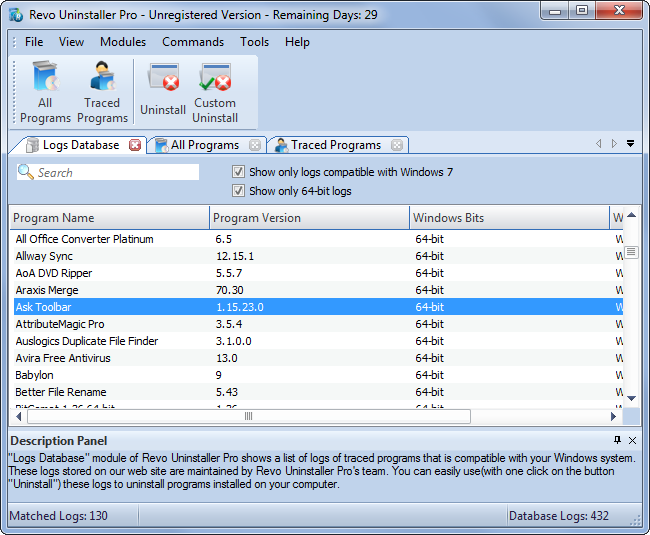Quick Links
If you're like most Windows users, you probably just uninstall programs by launching their uninstallers from the Add/Remove Programs Control Panel. But if you're a geek, there's a chance you've dabbled with a third-party uninstaller.
Third-party uninstallers aren't a system tool most users will need, but they're not entirely useless. Unlike memory optimizers and registry cleaners, they can potentially be useful in some situations.
Why Aren't Normal Installers Always Good Enough?
Installers for desktop programs on Windows are essentially programs of their own. Installed programs aren't managed by the operating system, like mobile apps on Android and iOS are -- although "Modern" Windows apps do work this way. They're not even managed by a package manager like they are on Linux, where the package manager keeps its own list of the files it installs.
Instead, the installer is free to do whatever it wants to your system. Typically, installers will create a directory in Program Files as well as scatter shortcuts around the system. They'll also add information to the registry. Some programs that need to integrate more deeply with the system may dump DLLs and other files into the Windows folder or install system services. When a program launches, it may make additional changes to the system's registry and future updates may add additional files elsewhere on the system.
Each developer creates their own uninstaller for their program. In an ideal situation, the uninstaller will clean up everything the program added to the system and leave the system in a fresh state. However, uninstallers don't always work this well and may only remove some of the files, settings, libraries, and services they installed.
Third-Party Uninstallers For Specific Programs
Many antivirus programs have a problem uninstalling in the normal way. For example, uninstalling Norton or McAfee antivirus from your Control Panel may not remove everything from the system. That's why these antivirus developers offer dedicated removal tools that you can download and run to really purge the program's files from your system. Antivirus programs often run into this problem because they integrate so deeply with the system.
What a Third-Party Uninstaller Does
Third-party uninstallers attempt to exercise control over the uninstall process, removing what the official uninstaller misses. When you use a utility such as the widely-known Revo Uninstaller, it generally runs in the background and watches what an installer does when it installs the program. These tools may also watch the program when it runs for the first time, checking what it does during first startup.
The utility keeps a list of every file it sees the program add and every registry change it sees the program make. When you uninstall the program with the third-party uninstaller, the third-party uninstaller will run the program's standard installer and then clean up any files the program left behind. Ideally, there'd be no point in doing this. However, if a developer is particularly lazy, there may a number of files to remove remove and settings to revert after you uninstall the program the standard way.
These programs may also have other modes. For example, Revo Uninstaller has a feature that will remove the remnants of installed programs based on Revo's own logs database. Revo's developers keep a list of program installation logs, so they can automatically delete any files left on your system that appear in the log. You can even remove the traces of programs you've already uninstalled.
The free version of Revo just has the ability to uninstall programs based on Revo's log files and not watch programs to create your own log files, but even free version should be more than useful enough for users who need this kind of tool.
So, Should You Use One?
In an ideal world, there'd be no need for a third-party uninstaller. However, Windows desktop software is so disorganized that there's a good argument to be made for them in some situations.
First of all, if you're an average user, skip the third-party uninstaller. We haven't run one on all of our computers and haven't run into much trouble when we didn't use them. Standard uninstallers are generally good enough. A third-party uninstaller is just another system tool that adds needless complexity to your life for questionable benefits.
However, even average users may want to use dedicated removal tools when uninstalling notoriously problematic tools like Norton or McAfee. There's a reason the developers provide official removal tools you can download -- but you don't need a third-party uninstaller. The official removal tool will likely work better.
If you're a geek who's constantly installing and uninstalling software, running a third-party uninstaller can help you prevent useless files from building up and programs from leaving useless libraries and other files behind. You do have to be constantly installing and uninstalling software for this to matter -- typical users shouldn't really notice a difference. Even hardcore geeks would be fine without third-party uninstallers in the vast majority of situations, and such geeks would likely know how to clean up any problems by hand. If any problems did occur, you could always install something like Revo later and use it to remove traces of a problematic program that you've already tried to uninstall the normal way.
In reality, third-party uninstaller tools are rarely necessary. Most people shouldn't use them, because each program's uninstaller generally does a good enough job, even if it isn't perfect.




